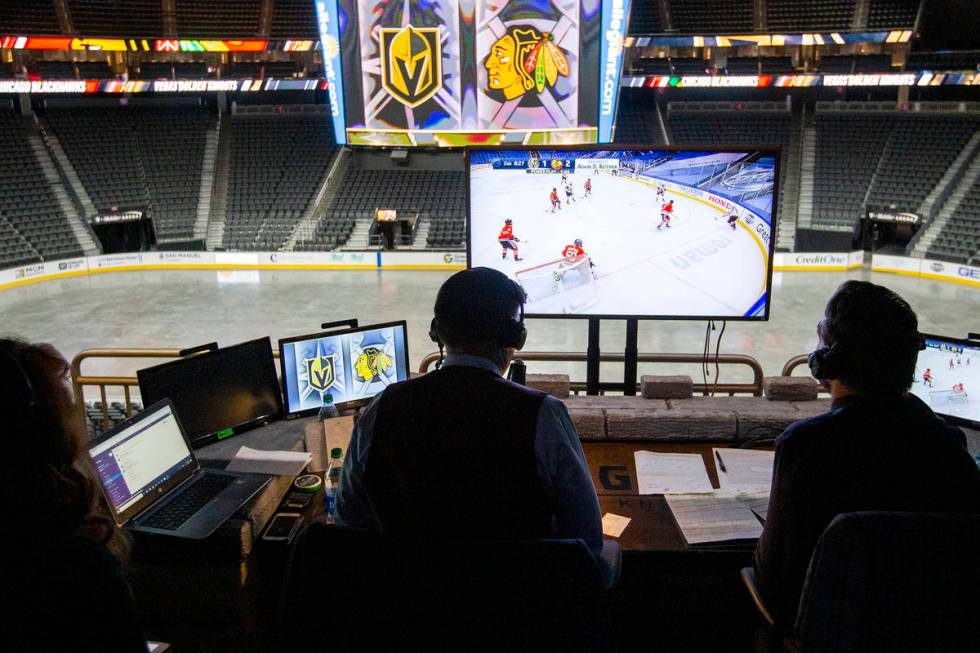Even during pandemic, sports blackouts are here to stay

It has been a little more than two years since the Baseball Winter Meetings were in Las Vegas and I wrote about TV blackouts in sports.
What was true then remains true today, even during a pandemic.
Blackouts have nothing to do with forcing you to buy a ticket to watch a game. Rather they exist to protect regional sports network telecasts and the millions of dollars regional sports networks pay sports franchises for broadcast rights.
That explains the reason baseball fans in Southern Nevada are precluded from watching on TV games involving the Diamondbacks, Dodgers, Angels, Padres, Athletics and Giants when it is much too far for them to drive to see them play in person.
Without blackouts, the regional sports networks would lose value and eventually go away, and then the checks they write to baseball teams — and basketball and hockey teams — would do likewise.
In which case the Golden Knights may not have been able to sign Marc-Andre Fleury to a long-term contract extension. The money from blackouts trickles down a long way.
Could be worse
Without blackouts and regional sports networks, MLB and the NHL, et al., would be forced to produce games themselves. Some probably wouldn’t be shown on TV because of the expense or logistics.
The NFL, with its billions of dollars in national TV contracts, doesn’t rely on regional sports networks and abandoned TV blackouts years go just because it could.
At some point, for fans it might go back to growing up in Arkansas or some place like it in the 1960s when one looked forward to Curt Gowdy and NBC’s Game of the Week, because that was about all the televised baseball one might get.
Writes Mark DiGiammarino for The Turf sports website: “This brings us to the biggest misconception about MLB blackouts. Teams are not blacking out games to make you go to the stadium, which the NFL (was) famous for. They are doing it to ensure they don’t piss off the RSN’s, which are their cash cows.”
Anyway, in the last couple of years, local complaints about blackouts had pretty much gone the way of the sacrifice bunt. Perhaps that column I wrote after the baseball meetings resonated. More likely: sports fans had come to accept blackouts and grown weary of complaining about them.
At least until the pandemic.
Where’s my refund?
When sports closed and there were no games to black out, fans complained about having to pay for games they no longer were receiving — especially when so many fans had lost their jobs. But without the sales of tickets and beer and king-sized nachos served in batting helmets, the leagues also were losing money.
They basically told fans to look at it like a rain delay of biblical proportions. At same point there would be a season and there would be playoffs in a bubble, and then you will be happy to have paid the $19.95 monthly fee to watch the home team and a bunch of fishing shows included on the sports programming tier.
Eventually, some refund checks were written. One Comcast customer from Detroit said he received one for $4.15.
With the virus having slightly abated and NBA and NHL fans starting to return to arenas in percentages, I expect the complaints about blackouts to subside again. Yes, it would have been nice to have them lifted when so many were starving for entertainment or couldn’t afford it.
But with regional sports networks now generating more than $2 billion annually for home teams, pro sports are like watching Tom Cruise perform an impossible mission during a free HBO preview.
At some point, you’re going to pay.
Contact Ron Kantowski at rkantowski@reviewjournal.com or 702-383-0352. Follow @ronkantowski on Twitter.